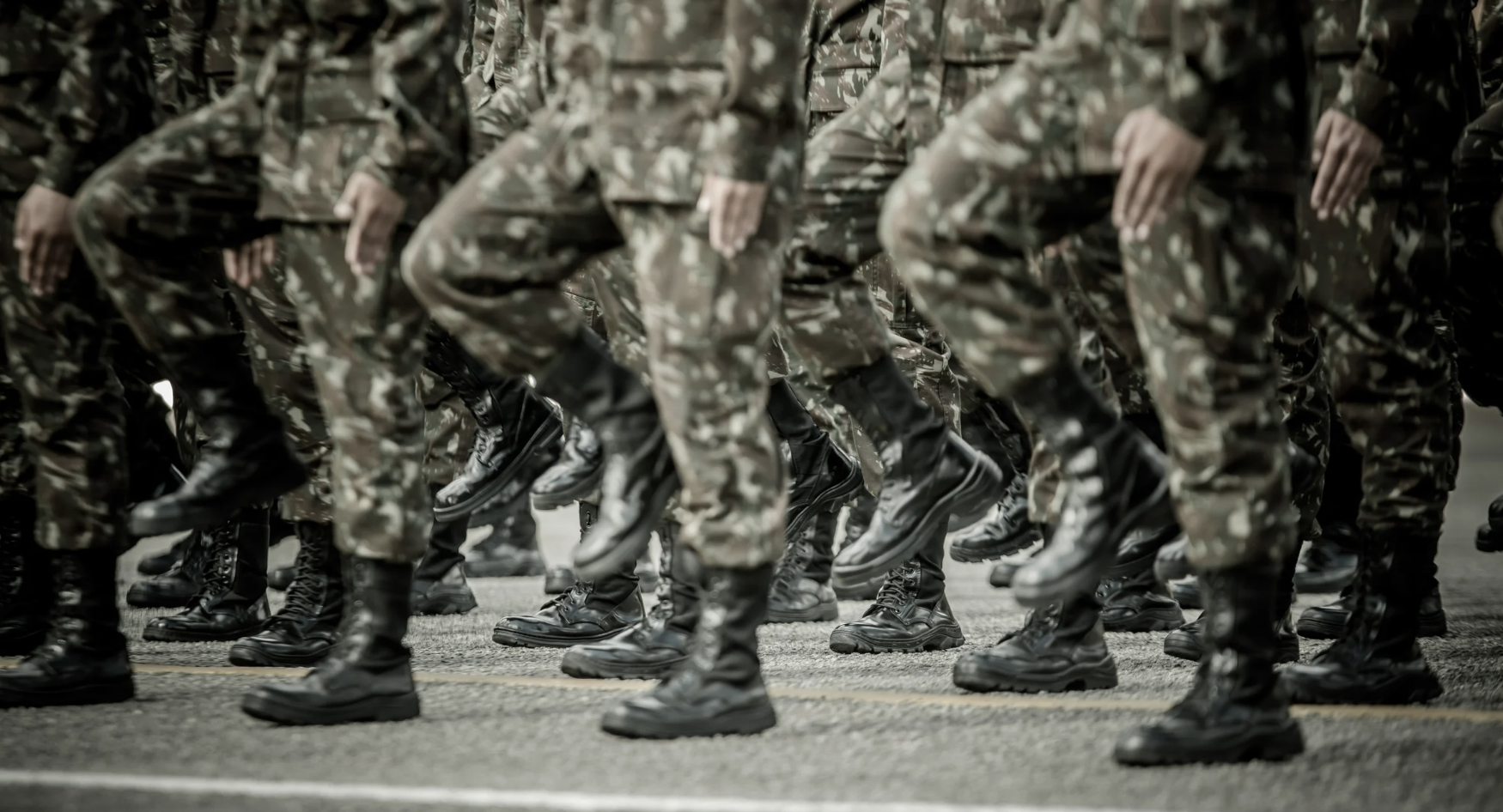A CID special agent plays an essential role in the Army by investigating serious criminal offenses. This blog post explains what it takes to become a CID special agent under MOS 31D and details their duties, training, and the types of investigations they handle.
What is a CID Special Agent?
A CID special agent works within the Army’s Criminal Investigation Division (CID). Their job is to investigate serious criminal offenses involving Army personnel or that occur on Army installations. They look into crimes like fraud, sexual assault, drug-related offenses, and more. Their role is similar to that of a federal law enforcement officer, but they specifically handle Army cases.
These special agents have the authority to gather evidence, interview witnesses, and conduct investigations. They follow strict military regulations and are responsible for maintaining the security and integrity of Army operations. Their work is vital to keeping the Army safe from internal threats and ensuring that justice is served.
What Does a CID Special Agent Do?
A CID special agent focuses on criminal investigations within the Army. They investigate incidents and offenses or allegations of criminality involving Army personnel. This can include interviewing suspects and witnesses, collecting evidence, and building cases that can be used in legal proceedings.
In addition to investigating crimes, these agents also provide investigative support by monitoring crime scenes, collecting digital evidence, and preparing reports. Their work often involves collaborating with other law enforcement agencies to ensure thorough investigations. They play a key role in maintaining order and ensuring that criminals within the Army are held accountable.
How Can You Join the CID as a Special Agent?
To become a CID special agent, you must first enlist in the Army and complete basic training. Afterward, soldiers interested in becoming a special agent will attend Advanced Individual Training (AIT) for MOS 31D. This prepares them for the unique challenges of criminal investigations within the military.
Once a soldier completes AIT, they can apply for CID training. The selection process is competitive and includes background checks, interviews, and assessments to ensure that the candidate has the necessary skills and personal integrity. The process is designed to select individuals capable of handling the demands of military investigations.

What Training Do CID Special Agents Receive?
Once selected, CID special agents undergo specialized training, which includes a 15-week course focused on criminal investigation techniques. During this training, they learn how to gather evidence, conduct interviews, and understand military law. They also receive hands-on training in areas like crime scene management and digital forensics.
In addition to this initial training, CID agents must continue to learn throughout their careers. They stay updated on new investigative methods and changes in laws and procedures to remain effective in their duties. Ongoing training ensures that CID special agents are always prepared to handle any criminal case that comes their way.
What Are the Requirements to Become MOS 31D?
To qualify for the MOS 31D role, candidates must meet several important criteria. First, they must be U.S. citizens and have a clean criminal record. Additionally, candidates need at least a high school diploma or equivalent.
After meeting these basic qualifications, candidates must pass a selection process that includes physical fitness tests, interviews, and background checks. Once selected, soldiers enter the CID training program, where they develop the skills needed to become effective CID special agents.
How Do CID Investigations Work?
A CID investigation begins when a criminal offense is reported or discovered within the Army. The CID special agents assigned to the case will gather preliminary information to determine the nature of the crime and how to proceed. This often includes interviewing witnesses, securing the crime scene, and collecting physical and digital evidence.
As the investigation continues, agents may work with other military and civilian law enforcement agencies to ensure a thorough investigation. Their goal is to build a strong case by analyzing evidence and interviewing all relevant personnel. In the end, they compile their findings into detailed reports that are used in legal proceedings.
What Crimes Do CID Special Agents Investigate?
CID special agents handle a wide range of crimes, including murder, sexual assault, fraud, and drug-related offenses. They also investigate financial crimes, espionage, and cybercrimes. Their job is to protect the integrity of the Army by addressing both major and minor criminal activities within military ranks.
In addition to investigating serious crimes, CID special agents may also be called upon to handle situations involving misconduct or violations of military regulations. Their work ensures that criminal activity is addressed quickly and fairly, keeping the Army safe and secure.
How Does Intelligence Help CID Special Agents?
Intelligence is a critical tool for CID special agents. Gathering and analyzing information about potential threats or criminal activity helps them prioritize investigations and take proactive steps to address security concerns. It allows them to anticipate crimes and build strategies for handling complex cases.
Intelligence also enables CID agents to collaborate with other military units and law enforcement agencies. By sharing intelligence, they can uncover new leads, track criminal activities, and coordinate efforts to bring offenders to justice. This collaborative approach strengthens their ability to solve cases efficiently.
How Do CID Agents Collaborate with Other Law Enforcement Agencies?
Collaboration is key to the success of CID investigations. CID special agents often work with other federal, state, and local law enforcement agencies to investigate crimes that involve both military and civilian personnel. By coordinating efforts, they can access more resources, share information, and bring more expertise to complex cases.
This cooperation helps CID special agents address crimes that may cross into civilian jurisdictions or involve both military and civilian offenders. Whether it’s a local police department or a federal law enforcement agency, CID agents work hand-in-hand with other agencies to ensure that justice is served.
What Career Opportunities Are Available for CID Special Agents?
After serving as a CID special agent, many individuals go on to have successful careers within or outside the Army. Within the Army, agents may earn promotions or take on leadership roles in criminal investigations. They may also specialize in specific types of investigations, such as cybercrime or fraud.
Outside of the military, former CID special agents often transition to careers in federal law enforcement, private security, or investigative roles in the private sector. The skills and experience they gain in the Army make them highly valuable in both military and civilian law enforcement careers.
Key Takeaways
- CID special agents investigate serious crimes involving Army personnel and play a crucial role in maintaining security within the Army.
- They conduct investigations, gather evidence, and collaborate with other law enforcement agencies.
- To become a CID special agent, candidates must enlist in the Army, complete MOS 31D training, and pass a competitive selection process.
- CID agents undergo specialized training and continuous learning to stay effective in their roles.
- They investigate a variety of crimes, including fraud, sexual assault, and cybercrime, and work closely with other agencies to ensure justice.
- Intelligence gathering is an essential part of their investigations, helping them solve cases efficiently.
- CID special agents can advance their careers within the Army or transition to civilian law enforcement roles after their service.
FAQs
Q. What is 31D in the Army?
A. 31D is the Military Occupational Specialty (MOS) for CID special agents in the U.S. Army. These agents investigate serious criminal offenses within the Army, such as fraud, sexual assault, and murder. They are responsible for gathering evidence, interviewing witnesses, and building cases to ensure justice is served in military legal proceedings.
Q. Does Army CID Go Undercover?
A. Yes, Army CID special agents sometimes go undercover to gather information and investigate criminal activities that require covert operations. These undercover missions help them infiltrate organizations or monitor suspicious activities that cannot be detected through traditional investigative methods.
Q. What is the Most Common MOS in the Army?
A. The most common MOS in the U.S. Army is 11B Infantryman. Infantry soldiers are the backbone of the Army and are trained to engage in ground combat, handle weapons, and support military operations in various environments.
Q. What is the Rarest MOS in the U.S. Army?
A. One of the rarest MOS in the U.S. Army is 12D Diver. Army divers are responsible for underwater construction, demolition, and salvage operations. Due to the specialized training and unique skills required, this MOS has a very small number of personnel.
Q. What is the Highest Paying MOS in the Army?
A. The highest paying MOS in the U.S. Army tends to be those that require highly specialized skills, such as 60F Pulmonary Disease Officer (Physician) or other medical roles like 65D Physician Assistant. These roles often come with special pay incentives due to the high level of training and expertise required.

